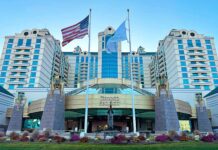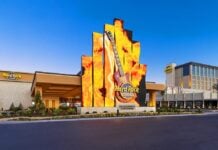This month, six tribal leaders weigh in on the benefits of gaming revenues from their enterprises, current goals and initiatives, and legislative issues. Here is what they had to say…
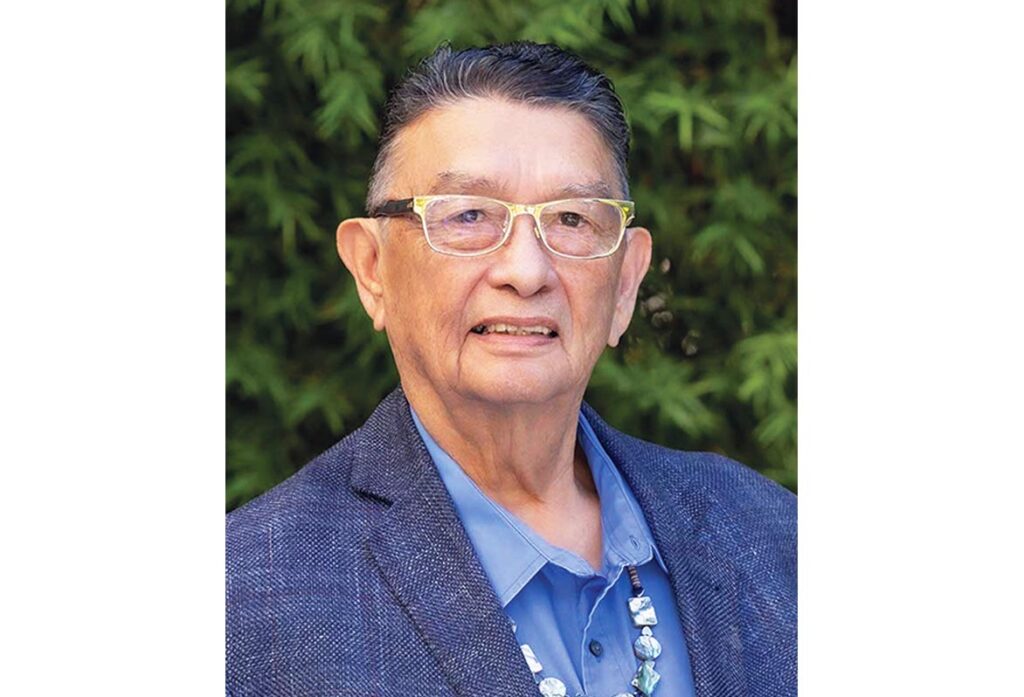
Dale Miller, Chairman
Elk Valley Rancheria
Elk Valley Casino – Crescent City, CA
elkvalleycasino.com / elk-valley.com
BENEFITS OF GAMING: Gaming revenues have been a crucial lifeline for the Elk Valley Rancheria. They have allowed us to invest significantly in our tribal community, improving essential services such as healthcare, education, and housing. We’ve been able to provide scholarships for tribal members pursuing higher education and vocational training, which strengthens our community’s long-term economic stability. Additionally, gaming has enabled us to create jobs – not just for tribal members, but also for the surrounding community. This has led to a reduction in unemployment and increased local economic activity. We are proud to say that the Elk Valley Casino has been an anchor of growth, promoting business partnerships and tourism in Del Norte County.
GOALS & INITIATIVES: One of our main goals is to continue the economic diversification of the tribe beyond gaming. While gaming has provided significant benefits, we recognize the importance of long-term sustainability through investments in other industries, such as renewable energy and eco-tourism. We are working on initiatives to reduce our environmental impact by integrating energy efficiency measures and considering microgrid technology that will benefit both the casino and the broader community. We are also focused on expanding our youth programs, ensuring that our next generation has access to the skills and resources necessary to lead our tribe into the future. Moreover, the completion of our expanded gaming and entertainment facilities is a key priority, as we aim to offer a wider range of services and attract more visitors, enhancing our tribe’s financial security.
LEGISLATIVE: We are closely monitoring several legislative and judicial issues that impact both our tribe and the broader Native American community. One key area of concern is the ongoing efforts by some tribes to expand their base of gaming operations and how that affects our sovereignty and self-governance. We are also paying attention to any potential amendments to gaming regulations at the federal level, as these could have direct implications for our operations. Of course, we continue to watch the development of sports betting and iGaming in other states in anticipation that online sports betting will be forthcoming in California.
Another pressing issue is the protection of our natural resources. The tribe has a deep connection to the land, and any legislation that affects environmental protections, including the development of new renewable energy opportunities in the region, is of particular concern.
Lastly, we continue to advocate for the return of ancestral lands, which remains a cornerstone of our political efforts. Protecting our cultural heritage while pursuing economic development remains at the forefront of our tribal leadership’s agenda.
These responses reflect our commitment to not only maintaining the benefits gaming has brought to our tribe, but also ensuring a sustainable and sovereign future for the Elk Valley Rancheria.
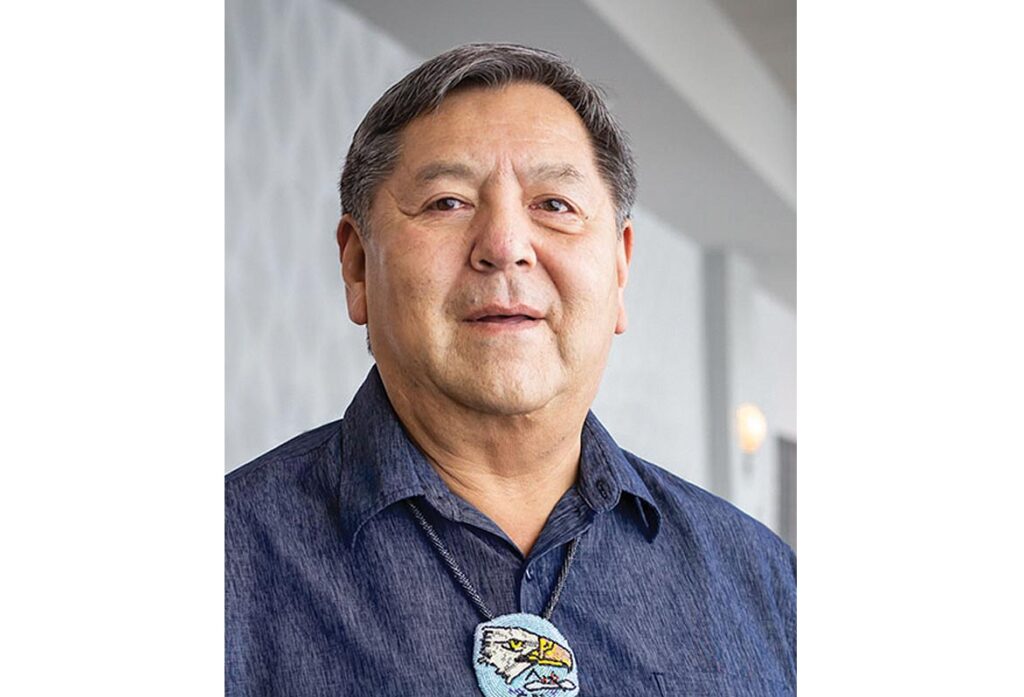
Glen Nenema, Chairman
Kalispel Tribe of Indians
Northern Quest Resort & Casino – Airway Heights, WA
Kalispel Casino – Cusick, WA
northernquest.com / kalispelcasino.com / kalispeltribe.com
BENEFITS OF GAMING: Since 2000, when the Kalispel Tribe opened Northern Quest Resort and Casino in Airway Heights, gaming revenue has been a primary resource for our tribe to develop our Camas Path programs, which provide critical social, health, and education opportunities. These programs have significantly improved the lives of our tribal members.
In addition, we’ve been able to invest in our culture and language programs. Our Salish language was on the verge of extinction, with only a few elders fluent. Today, we have language classes in our early learning center for school-age children and for adults, helping to revitalize this important aspect of our heritage.
Our reservation, located along the Pend Oreille River in rural Northeast Washington, is situated in a floodplain, making infrastructure development historically difficult. Gaming revenue has provided the resources needed to overcome these challenges. We’ve been able to bring clean water and electricity to all reservation homes; build roads, healthcare facilities, and a public safety department; and improve our powwow grounds.
Gaming revenue has allowed us to become a strong regional partner and economic driver. Unlike other businesses, the Kalispel Tribe is rooted here – we aren’t going anywhere. We employ more than 2,000 people and contribute millions to local economies.
Through our charitable giving program, we have donated over $24 million to support critical needs throughout our region, including healthcare, social services, environmental conservation, arts, and culture. We strive to follow in our ancestors’ footsteps by being good neighbors and stewards of the land.
GOALS & INITIATIVES: Historically, our tribe’s connection to the Pend Oreille River, or “ntxwe,” has been central to our culture. Our people established villages and summer root “digging camps along its banks, and we are still known as “The People of the Pend Oreille.” Many of our initiatives and goals focus on reconnecting with the river and restoring our relationship with the surrounding lands. This includes promoting conservation, habitat restoration, and working toward environmental and economic justice for future generations.
LEGISLATIVE: Our primary focus in the policy arena is protecting tribal sovereignty and promoting sustainability and self-sufficiency for our people. We are particularly focused on achieving parity, such as through the enactment of the Tribal Law Enforcement Parity Act. Additionally, we are using every available tool to restore the natural habitats surrounding our lands, which is vital for the health and wellness of our community.
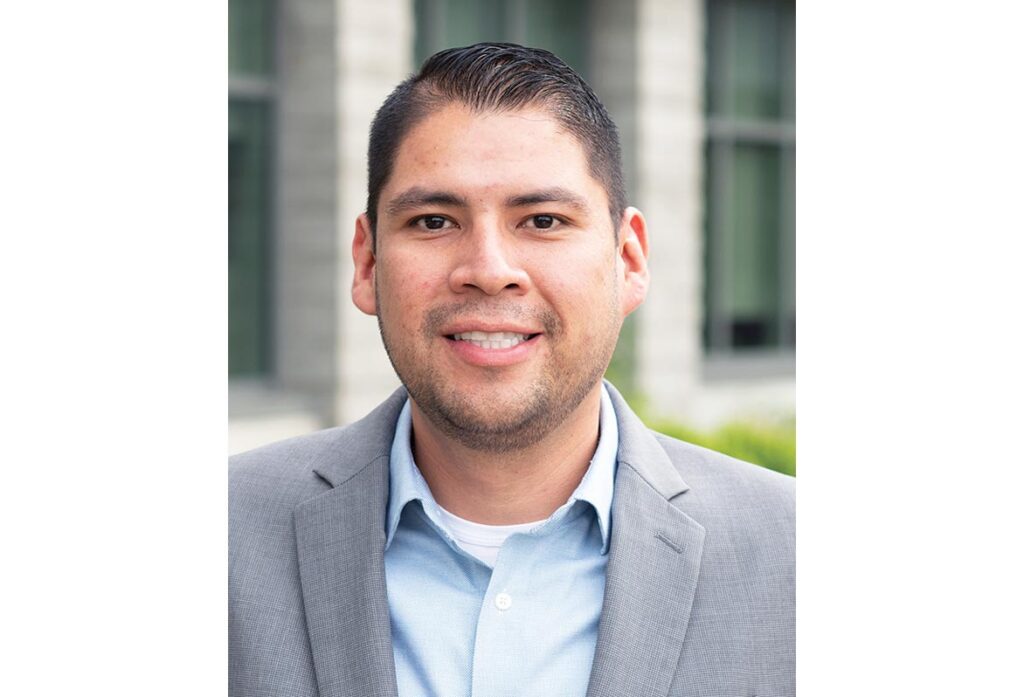
Bob Peters, Chairman
Match-E-Be-Nash-She-Wish Band of Pottawatomi (Gun Lake Tribe)
Gun Lake Casino – Wayland, MI
gunlakecasino.com / gunlaketribe-nsn.gov
BENEFITS OF GAMING: We now have a variety of services available to our citizen community thanks to the success of our tribal enterprises, which include a casino. Some of those are health and human services, education, language and culture, elder and youth services, and tribal member benefits, which all operate as part of our government to provide valuable services to our citizens.
Our tribe also has an educational scholarship endowment, as well as internships for youth. Other benefits include down payment assistance, housing improvement, individual development accounts (IDA), principal pay down, and a water and sewer/sanitation improvement program. These programs are coupled with housing and financial wellness education for groups of citizens and individually.
One example of our impact on the local community is through our Local Revenue Sharing Board (LRSB), which received more than $2.2 million this year, and distributes these funds to several local organizations. One of those organizations is the Wayland Union School District, which recently used $425,000 of the funds from the LRSB to put in artificial turf on its soccer field. The district also uses these funds to provide iPads to students, fund a full-time security officer, reduce preschool tuition for the community, and to eliminate “pay to play” fees for sports. This is just one of the organizations we support through gaming revenues.
GOALS & INITIATIVES: We’re currently expanding our gaming enterprise to include a hotel and indoor oasis, making it a full casino resort, with the hopes of attracting more guests and increasing revenues. To support this and other future growth for the tribe, we’re in the process of building a water and wastewater treatment plant, complete with a one-million-gallon water tower. This infrastructure will help support existing enterprises such as the Gun Lake Casino, the Noonday Market and Gas Station, the government campus, and also a development corridor we are planning near the casino that could provide further retail, restaurants, entertainment and other businesses for the community.
A Bureau of Indian Affairs (BIA) Tribal Climate Resilience Grant we received earlier this year will be used to build further energy infrastructure – a ground-based solar array that would produce 939,390 kWh annually. Our Gun Lake Investments arm also works to seek out additional enterprises for the tribe to invest in.
LEGISLATIVE: We support initiatives to protect the environment, the rights of Indigenous people and our sovereignty. We care about issues that protect the welfare of our elders and our youth. Preserving our Indigenous traditions, language and practices is also a top priority.
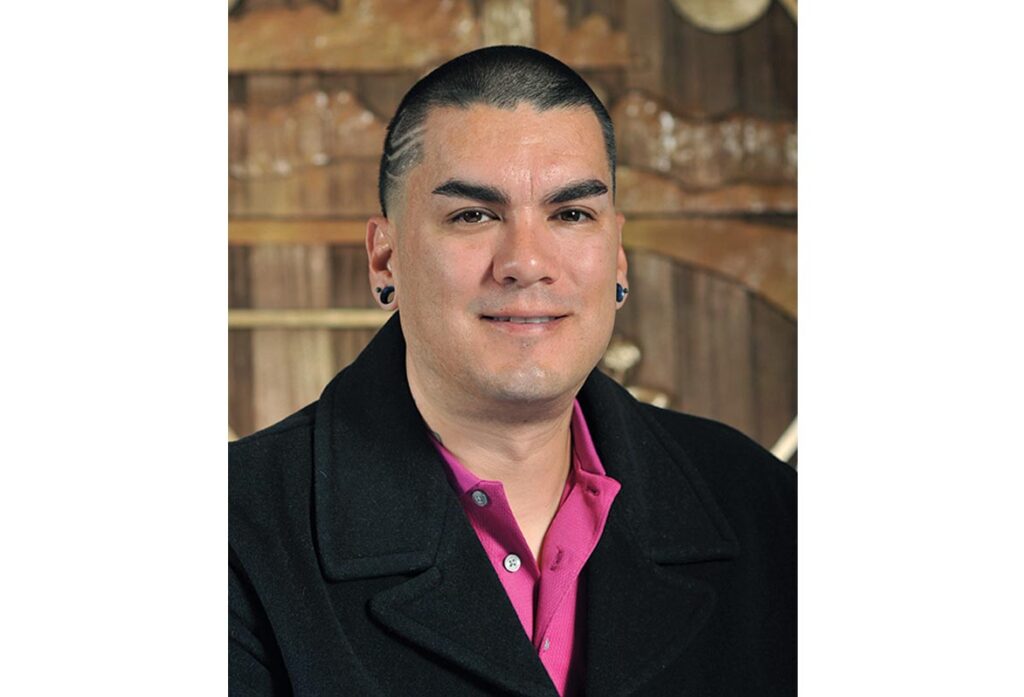
Doug Welmas, Chairman
Cabazon Band of Cahuilla Indians
Fantasy Springs Resort Casino – Indio, CA
fantasyspringsresort.com / fantasyspringsresort.com/cbmi
BENEFITS OF GAMING: Gaming revenues have benefited our tribe and community in various ways. Our members are able to provide for not only their immediate families, but many other family members as well. We’re able to provide medical assistance, along with educational help. We’ve seen a few of our members not only go to college, but graduate with degrees, which helped them along their life journey. Our tribe is a big believer in the community. We do our best to provide assistance to many different organizations in the east end of the Coachella Valley.
GOALS & INITIATIVES: As a tribe, we have quite a few different goals. Our members going for higher education is a big goal. We know that our youth are the future, so knowledge is vital. Our tribe is also very big on having enterprises outside of the casino. Being self-sufficient is big for our growth and our future. We are also very mindful of our employees, so providing the best job experience is key.
LEGISLATIVE: At this point, there aren’t any political issues that we’re looking at. We do our best to take it one day at a time and focus on our business.
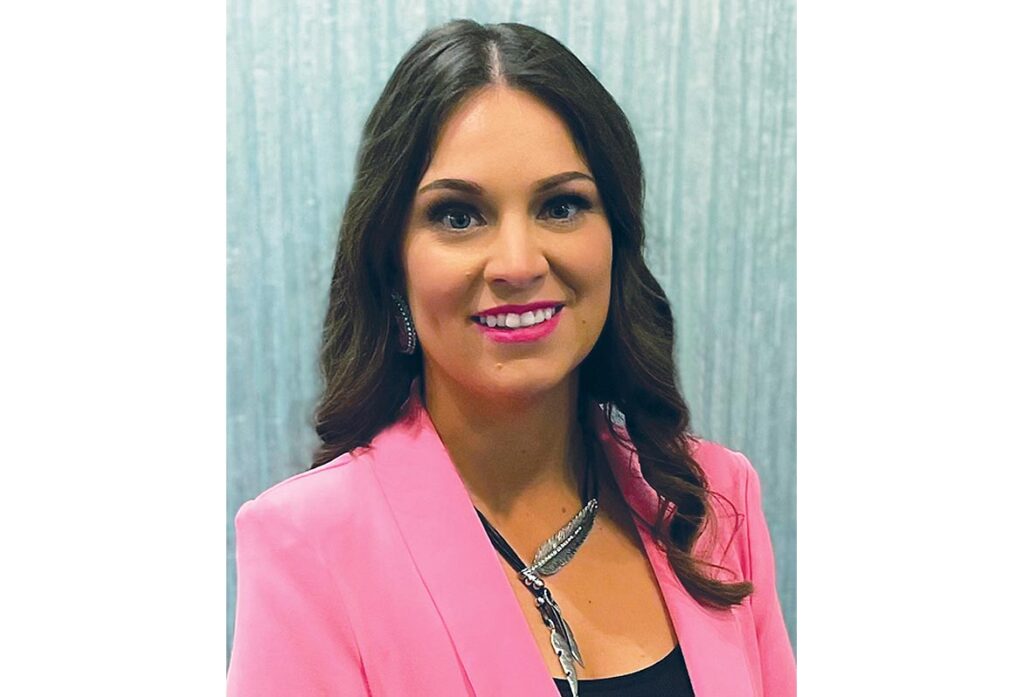
Candace Schmidt, Chairwoman
Ponca Tribe of Nebraska
Prairie Flower Casino – Carter Lake, IA
prairieflowercasino.com / poncatribe-ne.gov
BENEFITS OF GAMING: I think what sets our gaming enterprise apart from non-Native casino operations is that we are not just another corporation – everything we do is to help build a nation and uplift our community members. Since opening our casino nearly six years ago, we are three steps closer to being self-sufficient. One huge initiative that we have targeted is revitalizing our language program. We have recently been able to expand our cultural department to add actual language instructors, which is instrumental in helping to recapture our language that was stolen from us through boarding schools.
Beyond tribal programs, our casino is an economic driver within the region. We serve as one of the largest employers in the greater community, providing jobs to local residents and undertaking major investments, including significant infrastructure improvements. We always find ways to give back by supporting local initiatives and donating to community organizations and causes. The tribe also helps support the local municipality itself, providing financial assistance to help with their needs, including supporting the police and fire departments.
GOALS & INITIATIVES: The Ponca Nation, since our restoration 34 years ago, has grown leaps and bounds. We continue to strive to maintain positive growth trends by looking toward the future within our economic enterprises, including our casino, and looking to diversify our portfolio. Healthcare is another area in which we have plans to grow by expanding our current healthcare operations within the Omaha area and to other areas where we have office locations or where there is an underserved Native population.
Over the last eight-plus years, we have also placed an emphasis on tourism and promoting our beautiful homelands in the Knox County area, specifically in Niobrara, NE. We recently expanded and rebuilt our powwow arena, adding several new additions and enhancements to our entire powwow grounds. In years past, we added an education trail, a statue of our Chief Standing Bear, a learning atrium, and we are in the planning stages of building a Chief Standing Bear Museum and Ponca Cultural Center there as well.
Food sovereignty and utilizing our traditional foods as medicine is another area we are focused on, as we were recently awarded grant dollars through the U.S. Department of Agriculture to aid in those efforts to build our own processing plant, allowing us to promote a more traditional and healthy diet through buffalo meat distribution. The sky truly is the limit; we are growing in all directions, and it is an exciting time for us.
LEGISLATIVE: Seeing that healthcare is one area we have plans to grow in, we are always tracking any movement involving Medicare, Medicaid, and the Affordable Care Act. All of these healthcare options are extremely important for us, as they provide much-needed health coverage for not only our membership, but also for other Native Americans and non-Natives who have no other means to help cover their healthcare costs. A healthy population benefits all of us. These programs also help sustain health clinics, nursing homes, and hospitals.
The Ponca Tribe of Nebraska supports shifting the Indian Health Service budget to mandatory funding in fiscal year 2026 to address the tribe’s growing costs of providing direct healthcare services.
Maintaining and strengthening the Indian Child Welfare Act is always on our radar as well.
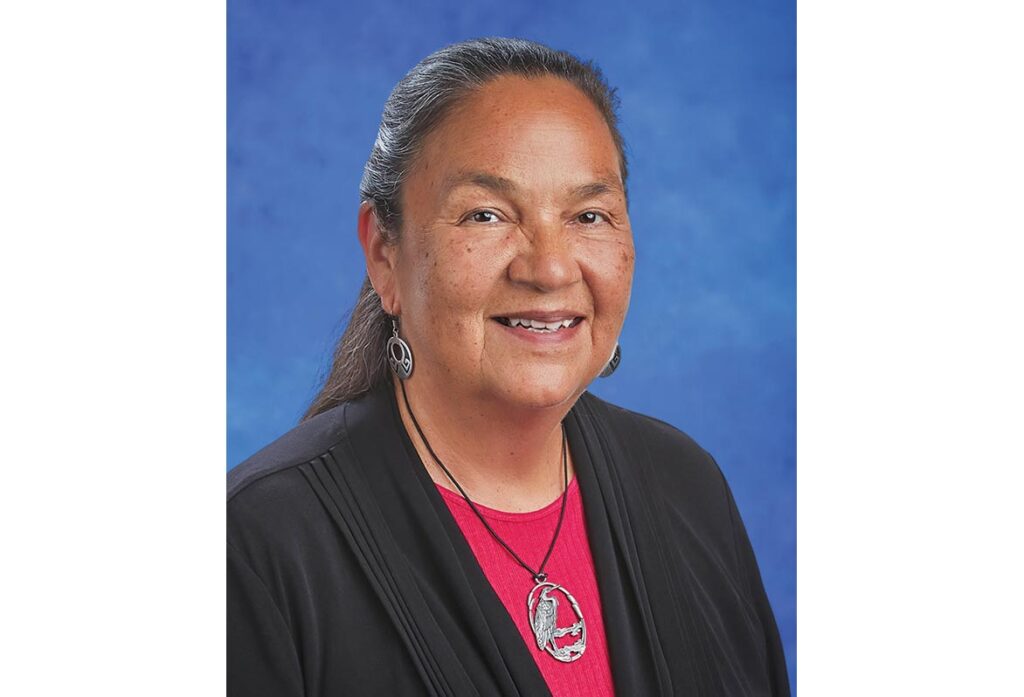
Sandra Witherspoon, Chairwoman
Grand Traverse Band of Ottawa and Chippewa Indians
Leelanau Sands Casino & Lodge – Peshawbestown, MI
Turtle Creek Casino & Hotel – Williamsburg, MI
leelanausandscasino.com / turtlecreekcasino.com / gtbindians.org
BENEFITS OF GAMING: In 1984, the Grand Traverse Band of Ottawa and Chippewa Indians opened its first gaming hall. The Leelanau Sands Casino and the Super Bingo Palace (the first high-stakes bingo hall in the State of Michigan) demonstrated our sovereignty as a tribal nation. In 1996, we opened Turtle Creek Resort and Casino under contested litigation under the Indian Gaming Regulatory Act’s “restored lands” provision. We won.
Gaming is our most significant source of revenue for the tribe and allows us to meet the unique needs of our tribal members. The federal government substantially underfunds programs mandated by treaty obligations. Gaming revenue has enabled us to provide healthcare, housing, job opportunities, education, public safety, food security, and other services. Tribal gaming dollars are very impactful to the health and welfare of our tribal members and the community.
We allocate two percent of our gaming revenue to local units of government. Since 1994, the tribe has allocated $46,323,969 to local governments, public schools, and non-profit organizations to provide services to all citizens residing in Northern Michigan.
GOALS & INITIATIVES: The tribe must leverage its competitive advantages, such as tax exemptions and regulatory flexibility, to build economic independence on tribal federal trust land. One of our priorities is to establish greater control over development on tribal lands. This includes the further development of our tribal-state tax agreement to include more categorical business entities to receive the benefit of the current agreement, and to expand the agreement to benefit more tribal members. By exercising full sovereignty over our land, we can create opportunities for economic growth that benefit both tribal members and our neighboring communities.
LEGISLATIVE: We face significant legislative, judicial, and political challenges. Despite our long-standing presence in Michigan – well before Michigan became a state – federal and state policies have historically constrained our sovereignty, limiting our ability to thrive socially and economically. These policies have had generational impacts, hindered our growth, and weakened our ability to exercise genuine self-determination commensurate with our sovereign status. A primary concern for our tribe is ensuring that the federal government meets and expands its trust responsibility to our tribe and that the State of Michigan recognizes its historical responsibilities and acknowledges our inherent sovereignty.
Nature stewardship remains a core component of our sovereignty. We continue to lead initiatives to protect and restore our environment, language, and culture. Projects like FishPass, a capstone of a 20-year river restoration effort in Traverse City, showcase our commitment to preserving Michigan’s waterways and habitats. We are opposed to the Enbridge Line 5 expansion, which jeopardizes the health of the Great Lakes and threatens our way of life.
Our tribe also supports and funds wild rice restoration. More must be done to respect our independence and recognize the positive contributions tribes make to Michigan’s economy and environmental health.



